Ask a Therapist: My Child Is Struggling – What Should I Do?
Q. My child is struggling. What should I do?
A. There are so many options for helping children with emotional or behavioral challenges. The process can be confusing to know what to do. “What type of testing is best? Do I see a therapist or a psychiatrist or a psychologist?”
- A psychologist is a professional who helps children and adults primarily with the diagnosis of learning disabilities and IQ testing, and dementia or Alzheimer’s for adults. A psychologist does not necessarily provide counseling, although they have other people in their office who often provide counseling. Experiences with psychologists vary and you may not get the answers you are looking for.
- A psychiatrist focuses on the diagnosis of mental health disorders, such as depression, ADHD, anxiety, etc. but also primarily provides medication management. A psychiatrist offers prescriptions to treat mental health symptoms. They usually do not provide counseling or therapy to clients, but they might have other people in their office who do provide counseling. A psychiatrist is usually an MD or an advanced practice nurse. For children, sometimes pediatricians can also be board certified in psychiatry and can provide medications for mental health.
- A therapist or counselor can also provide a diagnosis of a mental health disorder. A therapist is typically going to meet with you for an initial diagnosis and then they will recommend an estimated amount of therapy sessions. The therapist will meet with you individually and discuss problems and provide you advice or ideas on how to work through the problems. Most therapy is short-term, such as 6-9 months.
 Neurofeedback and Counseling Center of Utah is a little different from all of these because we provide a mental health diagnosis and a science-based brain map. We actually do a form of an EEG, which puts electrode sensors on the scalp and looks at 19 areas of the brain and how they are functioning. Once we know how the brain is functioning (or misfunctioning), we can provide a better description of what is happening on a neurological level to your brain. Then we offer brain training sessions that specifically target the areas of the brain that are needing assistance. This training is called neurofeedback. (Learn more about neurofeedback here.)
Neurofeedback and Counseling Center of Utah is a little different from all of these because we provide a mental health diagnosis and a science-based brain map. We actually do a form of an EEG, which puts electrode sensors on the scalp and looks at 19 areas of the brain and how they are functioning. Once we know how the brain is functioning (or misfunctioning), we can provide a better description of what is happening on a neurological level to your brain. Then we offer brain training sessions that specifically target the areas of the brain that are needing assistance. This training is called neurofeedback. (Learn more about neurofeedback here.)
We ask that you come twice a week for neurofeedback training. The training consists of an electrode sensor placed on the scalp that reads the brain activity in that area. Then the computer reads the brain waves and when the computer identifies a healthy brain wave pattern, a noise is made. The brain learns that this pattern is healthier and it repeats over and over throughout the twenty minute session. The brain eventually will learn to hold this pattern. The typical amount of sessions is 20 sessions for less severe cases, and 25-35+ for some cases.
Typical results that we see with ADHD and anxiety are significant reduction of symptoms. People frequently discontinue medications and are taken off of IEPs at school. Teachers and tutors report major improvements in grades and focus and concentration. People typically sleep deeper and report having more dreams.
Other symptoms such as migraines, TBI, concussions, pain, depression, and autism are typically improved with neurofeedback. For more information about how we can help you specifically, please call our office at 801-855-7999 to schedule a free consultation. We are located in Clinton, Utah, west of Ogden.

Casherie Bright, Associate Clinical Mental Health Counselor, is a partner at Neurofeedback and Counseling of Utah, along with her husband, Jeff Bright. “I love to work with children and their families to provide overall strategies on how to help the child adjust and find happiness. I don’t believe that children can be helped without supporting the parents.”
“My therapy methods tend to focus on skills (CBT) and changing core beliefs. My goal for each client or family is to help them create and visualize a life that is ideal and then work towards creating that life.”



